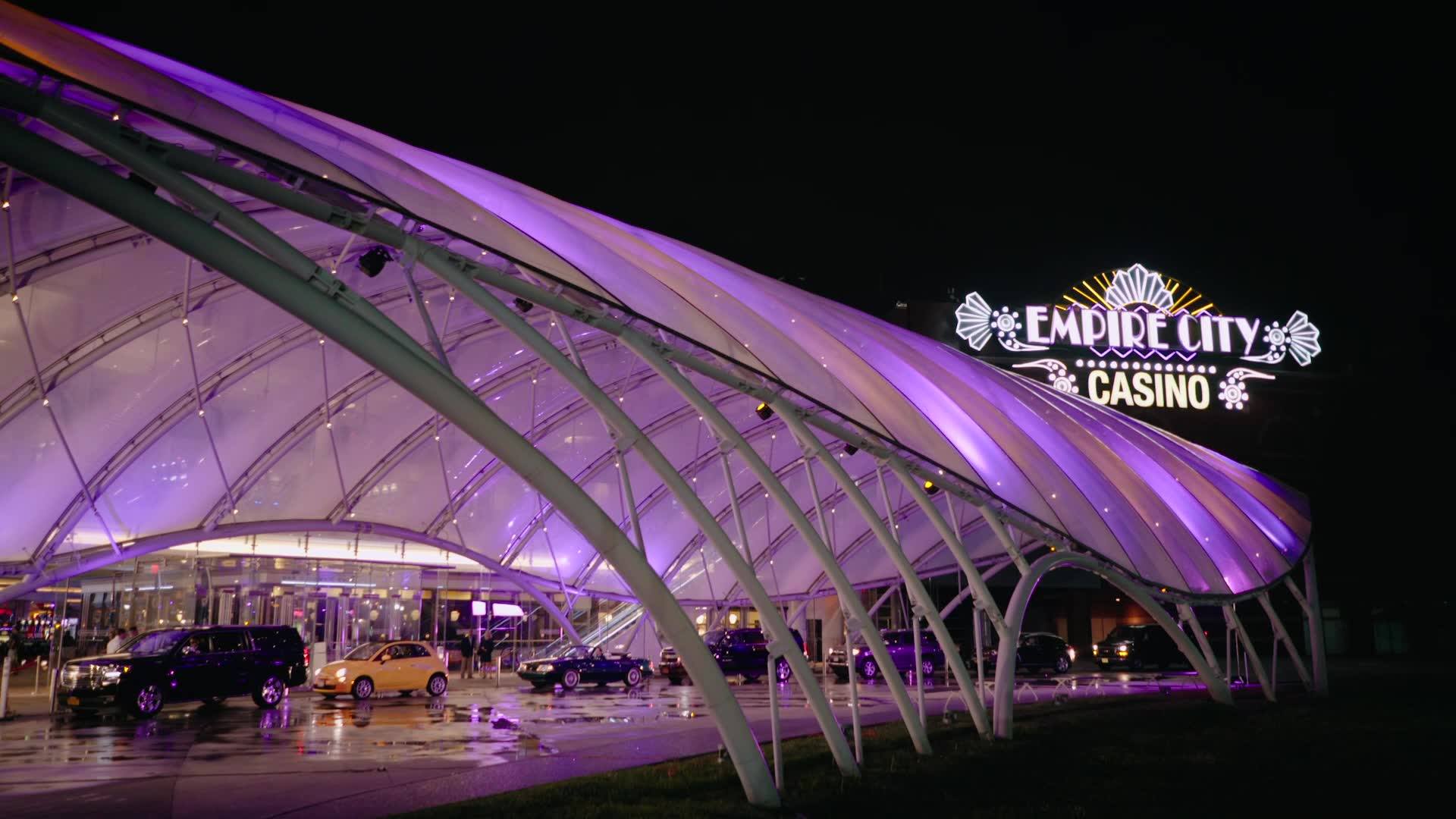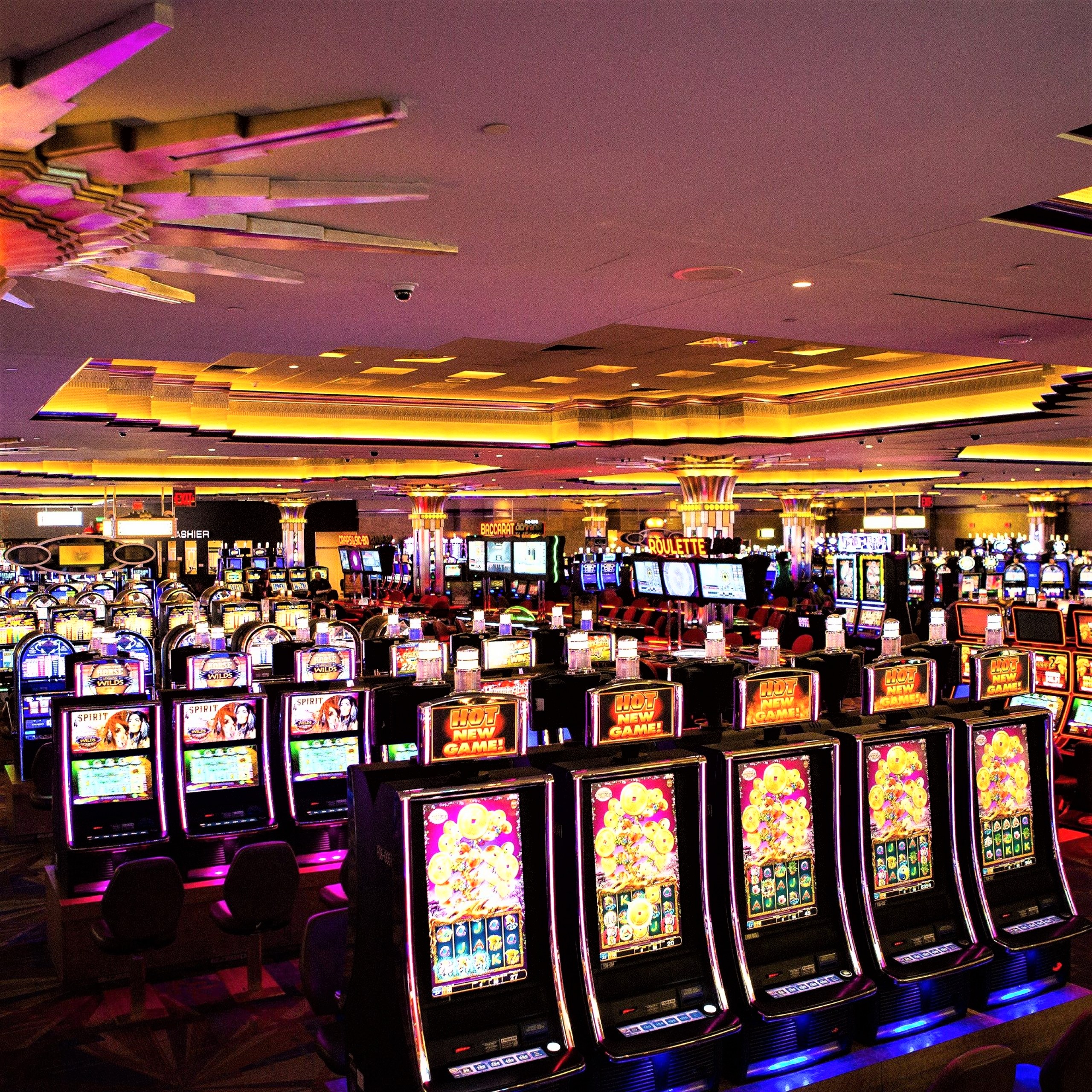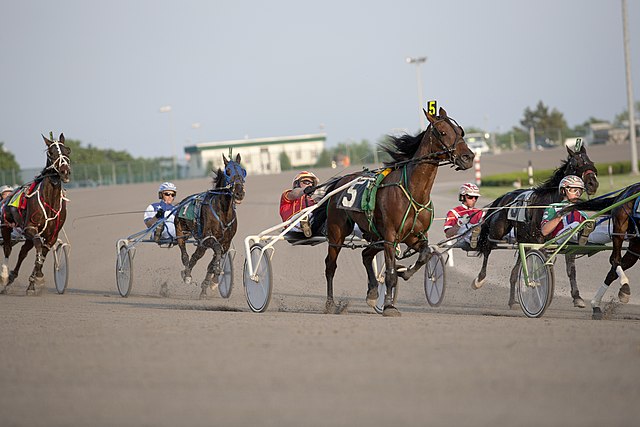SPECIAL REPORT: The Great Yonkers Casino Gamble
News Based on facts, either observed and verified directly by the reporter, or reported and verified from knowledgeable sources.
Has betting on Empire City paid off? (PART 1 of 2)

Good morning! Today is Monday, April 18, and you are reading today’s section of Examiner+, a digital newsmagazine serving Westchester, Putnam, and the surrounding Hudson Valley.
Need to subscribe — or upgrade your Examiner+ subscription to enjoy full access to all of our premium digital content? Take advantage of our special FREE TRIAL OFFER.
Take Examiner+ on a test drive today at NO CHARGE for a full month. Enjoy full membership-level access to all of our premium local content, delivered straight to your inbox six times a week.

Nestled between the New York Thruway and Bronx River Parkway in Southeast Yonkers sits Empire City, Westchester County’s only operating casino and horse racetrack.
Acquired by MGM Resorts from the Rooney family in January 2019, Empire City brought in a whopping $570 million this past fiscal year, with over $8 billion credits played between April 2021 and March 2022.
As Yonkers’ largest private employer, its highest property taxpayer, and a consistent contributor to school funding, there’s no question that Empire City plays a major economic role in New York’s downstate region and the city specifically.
That’s why elected officials, business leaders, and labor unions are pushing for a full-scale gaming license for the casino, which would bring live table games and dealers to the facility. Presently, Empire City only has video lottery terminals (VLTs), a type of electronic gambling machine.
https://instagram.com/p/CLHcbFYJzlG/
https://instagram.com/p/CODLJNkg2ui/
If Empire City receives a full gaming license, it will be able to replace its current electronic versions of table games with live dealers.
Yonkers Mayor Mike Spano, an ardent supporter of full-scale gaming, says if Empire City gets the license, the sky is the limit.
“If you talk to any expert about gaming, they will tell you that Yonkers is a sure bet,” Mayor Spano says. “Empire City has only been an economic success for us, and we think we can take it to the next level, providing meaningful jobs, development, and real revenue for New York State.”
Banding together
Last year, a consortium of 30 groups called “A Sure Bet For New York’s Future” came together to put pressure on state lawmakers and the former governor to greenlight a full-scale license for Empire City. The group says a full-scale gaming license will create thousands of new jobs for the area, generate even more revenue, and further boost educational aid for Yonkers schools.
While the Cuomo administration and some lawmakers were previously unwilling to grant downstate licenses — saying it would hurt the bottom-line of upstate casinos — Governor Kathy Hochul seems to have a different opinion.
In her recently-announced proposed state budget, Gov. Hochul included a one-year acceleration of the downstate license process initiated slated for 2023.
“We are thrilled that Governor Kathy Hochul and the State Legislature have reached an agreement to allow the state to issue the available commercial casino licenses,” Bill Hornbuckle, Chief Executive Officer and President of MGM Resorts says. “We applaud their tireless efforts to help communities recover from the lows of this pandemic.”
Just approved, her budget will allow the New York State Gaming Commission to issue a request for applications open to three casinos in the downstate region. It’s heavily anticipated that Empire City and Resorts World in Queens will vie for two of the three new licenses.
Hornbuckle says MGM looks forward to responding to the request for applications and is excited by the opportunity to bring thousands of new jobs and meaningful private investment to Westchester and the surrounding region.
“I’m encouraged and hopeful the governor put it in her budget,” Mayor Spano notes. “If they can get down to talking turkey quick, there is a chance that you could see [one of] the licenses here.”
With a full-scale license in Yonkers, Spano believes people will continue to spend their gaming dollars here rather than travel to out-of-state casinos in New Jersey or Connecticut.
Previously, Spano explains, 70 buses used to leave Westchester every day to go to Atlantic City. “That doesn’t happen anymore,” Spano says. “[Now] people are spending their time and money here.” Carey feels a full-scale license is long overdue for the region and would be a game-changer for the local labor force.

As of 2021, Empire City had over 1,000 employees on its payroll. Seventy-five percent of the positions are unionized, and a majority of workers are county residents coming from Yonkers and Mount Vernon.
With a full-scale license, it’s expected that there could be 6,000 new jobs brought to the area. “This gaming license will provide good-paying careers for our residents while providing world-class entertainment right here in Westchester County,” Carey says. “Empire City has a proven track record of supporting great wages and benefits to their employees and establishing a friendly and safe working environment.”
Carey notes that additional positions would provide job opportunities for everyone ranging from prospective hotel and restaurant employees to security personnel and building and construction trades. “We no longer need to drive to Connecticut or New Jersey or catch a long flight to Las Vegas when we can have this terrific venue right here to sustain economic growth,” Carey adds.
John Ravitz, Executive Vice President and COO of the Business Council of Westchester, echoes Carey’s sentiments. “Projected to generate more than $1 billion in economic activity and hundreds of millions in private capital investment for the region, a full-scale casino license at Empire City will help New York State and Westchester County recover from the economic crisis brought on by the pandemic, generate significant and immediate new revenue for the state through license fees, and bring investment to help communities like Yonkers, Mount Vernon, and the Bronx, which have been hardest hit by the pandemic,” Ravitz says.
From racinos to mobile sportsbooks
New York has a long history when it comes to gambling.
The New York state lottery began in 1967, with off-track betting legalized in 1970. In the 80s, Congress passed the Gaming Regulatory Act, which permitted casinos on Indian territory, including in New York. But racinos like Empire City, which are a combination of racetrack and casino, didn’t come into existence until 2001. In an effort to raise revenue following 9/11, which hit the tourism and entertainment sector hard, the state legalized several upstate casinos and permitted VLTs at preexisting racetracks including Empire City.
“[Yonkers Raceway] was going to close, but after 9/11, New York State was looking for revenue,” Mayor Spano says. “They decided to give casinos the ability to have VLTs, and that turned everything around.” In the two decades since VLTs were given the go-ahead, gambling in the state has only continued to evolve.

Voters approved a constitutional amendment to expand casino gambling in 2013, part of a plan to bring jobs to upstate regions experiencing economic hardships. In 2021, the state legislature legalized mobile sports betting, and the first online sportsbooks launched in January of this year. Mobile wagers surpassed $2 billion in the first five weeks alone, shattering records and demonstrating New Yorkers’ appetite for sports betting.
While mobile betting is a piece of the recovery puzzle for the gaming industry hard hit by the pandemic, the development also worries addiction specialists working to address problem gambling throughout the state.
New York’s Mid-Hudson region, which includes Westchester and Putnam counties, has the state’s second-highest rate of problem gambling (18.2 percent), trailing closely behind New York City (18.6 percent).
While the state Office of Addiction Services and Supports (OASAS) says it’s not surprising that NYC has the highest rate given its large population, it notes the Mid-Hudson figure stands out from other comparable regions.
This January, OASAS saw a 46 percent increase in calls to its gambling helpline compared to the previous January. Leilani Yizar, Team Leader at the Mid-Hudson Problem Gambling Resource Center (PGRC), says the line generally sees a higher call volume for Westchester County.
With the expansion of mobile sports betting, Yizar — who works alongside her team at the Mid-Hudson PCRC to increase awareness about problem gambling and connect individuals in need to services — says people will have easier access to participate in gambling.
With increased advertising and targeted marketing for online sportsbooks like Caesars, DraftKings, FanDuel, and MGM’s own BetMGM, Yizar worries individuals in recovery may be tempted to gamble again and new individuals may be lured in by incentives.

“People can place a bet anywhere through an easy cashless system,” Yizar says.
In Pennsylvania, calls from individuals reporting problems related to online gambling increased 285 percent after mobile sportsbooks were legalized in the state. Les Bernal, National Director of Stop Predatory Gambling, a national advocacy nonprofit against commercialized gambling, says New York politicians have made a mistake by legalizing mobile sports betting.
“They’ve opened a Las Vegas casino in every bedroom, dorm room, and smartphone in the state,” Bernal contends. Because of increased ease of access, Bernal worries there will become an epidemic of children who fall prey to gambling.
In part two of our SPECIAL REPORT next week (Monday, April 25), we take a candid look at some of the economic wins and social losses incurred by Yonkers and greater Westchester from its big bet on Empire City.
Bailey Hosfelt is a full-time reporter at Examiner Media, with a special interest in LGBTQ+ issues and the environment. Originally from Connecticut and raised in West Virginia, the maternal side of their family has roots in Rye. Prior to Examiner, Bailey contributed to City Limits, where they wrote about healthcare and climate change. Bailey graduated from Fordham University with a bachelor’s in journalism and currently resides in Brooklyn with their girlfriend and two cats, Lieutenant Governor and Hilma. When they’re not reporting, Bailey can be found picking up free books off the street, shooting film photography, and scouring neighborhood thrift stores for the next best find. You can follow Bailey on Twitter at @baileyhosfelt.
We hope you’ve enjoyed today’s section of Examiner+. What did you think? We love honest feedback. Tell us: examinerplus@theexaminernews.com
For hyperlocal news coverage of Westchester and Putnam from our four community newspapers, visit our sister site, www.theexaminernews.com

Examiner Media – Keeping you informed with professionally-reported local news, features, and sports coverage.
